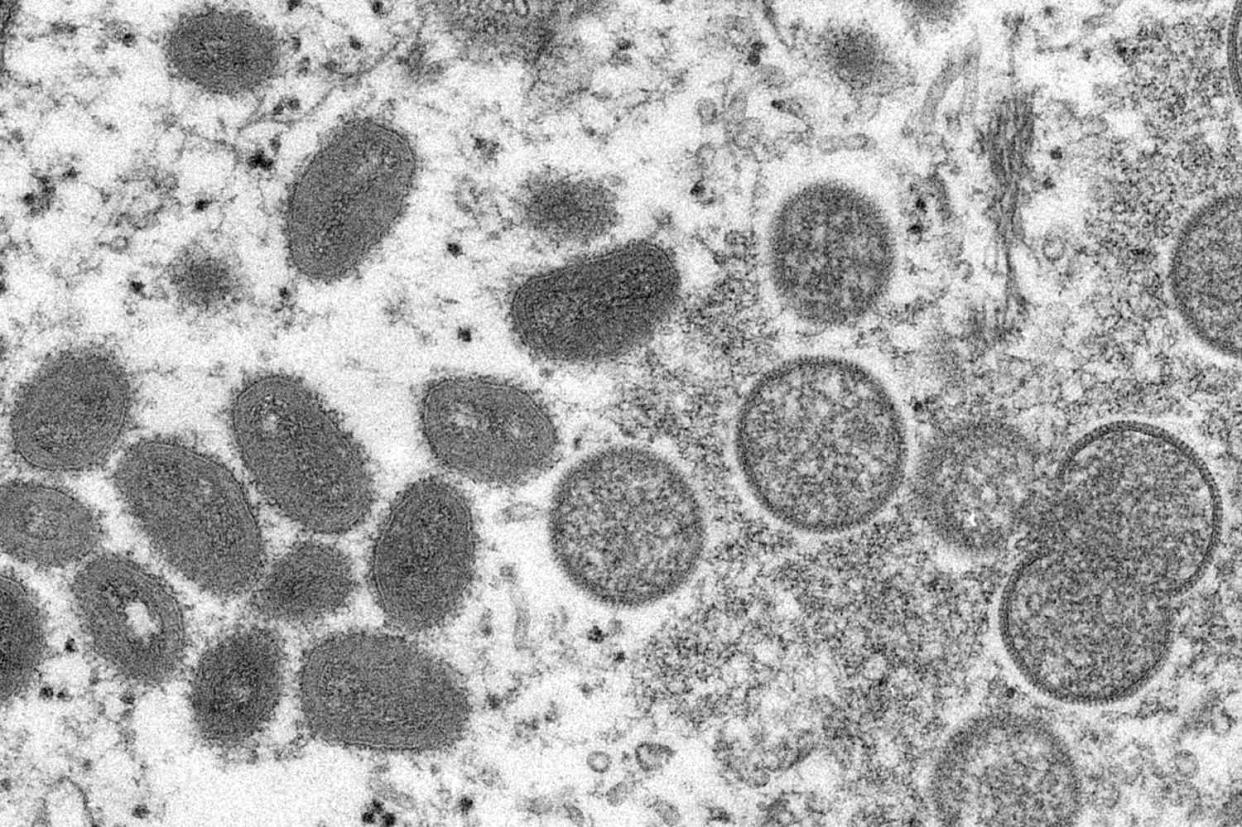CDC Raises Monkeypox Alert to a Level 2 as Global Cases Surpass 1,000

Cynthia S. Goldsmith, Russell Regner/CDC via AP Monkeypox virions
The Centers for Disease Control has raised their monkeypox alert to a level 2, urging anyone traveling outside of the U.S. to take "enhanced precautions" as global cases surpass 1,000.
Under a level 2 alert, the CDC recommends that travelers wear face masks and avoid close contact with sick people and animals, especially anyone with skin lesions. They also advise that anyone with unknown skin rashes or lesions keep away from others and contact their health provider.
If the U.S. were to go up to a level 3 alert, the CDC would recommend against any unnecessary travel.
RELATED: What to Know About Monkeypox — Including How It Spreads — as the CDC Confirms a U.S. Case
The CDC emphasized that the risk to Americans of contracting monkeypox is still low. There are currently 30 confirmed cases nationwide, with the most concentrated in California and New York, with 6 and 7, respectively. Ten other states and the District of Columbia have 1 to 4 confirmed cases.
RELATED VIDEO: The Importance of the COVID-19 Vaccine and the Call for 'Unity'
Monkeypox — named because it was originally found in colonies of monkeys used for research — first causes fever, headache, muscle aches, chills and swollen lymph nodes, and after one to three days patients develop a rash that spreads over the body and turns into fluid-filled lesions. Most people fully recover.
The rare virus can spread through respiratory droplets, but is most likely to transmit from touching body fluids or the rashes.
RELATED: Monkeypox 'Not a Sexually Transmitted Infection' but CDC Warns of Rashes in Genital Area
The current outbreak has been a surprise to global health experts, as monkeypox has mostly been concentrated to the Democratic Republic of the Congo and Nigeria. But in early May, cases started spreading in Western Europe, particularly in Spain, Portugal and the United Kingdom.
As of June 6, there are 1,019 confirmed cases worldwide across 29 countries, according to the CDC. The U.K. has seen the most, with 302, followed by Spain with 198 and Portugal with 153.
The World Health Organization says that the global risk level is moderate, because the virus is spreading in areas where it is not normally found, but nearly all cases have resolved without needing hospitalization for complications.

